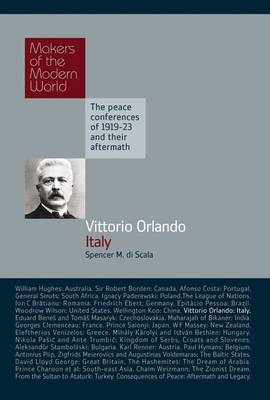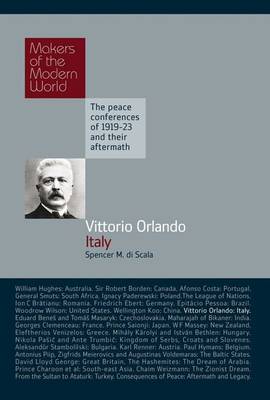
- Afhalen na 1 uur in een winkel met voorraad
- Gratis thuislevering in België vanaf € 30
- Ruim aanbod met 7 miljoen producten
- Afhalen na 1 uur in een winkel met voorraad
- Gratis thuislevering in België vanaf € 30
- Ruim aanbod met 7 miljoen producten
Zoeken
€ 18,45
+ 36 punten
Omschrijving
The Italian premier Vittorio Orlando came to Paris as one of the 'Big Four', yet in April 1919 walked out in one of the most dramatic crises of the Peace Conferences. Orlando's failure to win for Italy the territories she felt were owed to her was to have far-reaching consequences for both Italy and Europe as a whole. Italy in 1918 was in an ambivalent position: at the outbreak of war the country had been part of the Triple Alliance with Germany and Austria-Hungary, but had stayed neutral until joining the Allies in 1915 on the promise of territorial rewards. The war was a near-disaster for the Italians, culminating in the collapse of their armies at Caporetto in 1917. It was this crisis that brought Orlando to power, and he did much to restore the situation, but the Italians looked to Versailles to compensate them for the terrible losses they had suffered. In this book, the clash between Italy's territorial demands in the Balkans, which had been guaranteed by the Allies in 1915 and earned through her losses in the War, with the new Wilsonian doctrine of open diplomacy and national self-determination is detailed, and it traces the effects the failure of Orlando's delegation to satisfy their people's demands which directly to the rise of Fascism and to Mussolini's policies in the 1930s as he sought to obtain what Italy had been denied at Versailles.
Specificaties
Betrokkenen
- Auteur(s):
- Uitgeverij:
Inhoud
- Aantal bladzijden:
- 224
- Taal:
- Engels
- Reeks:
Eigenschappen
- Productcode (EAN):
- 9781905791798
- Verschijningsdatum:
- 1/08/2010
- Uitvoering:
- Hardcover
- Formaat:
- Genaaid
- Afmetingen:
- 135 mm x 201 mm
- Gewicht:
- 544 g

Alleen bij Standaard Boekhandel
+ 36 punten op je klantenkaart van Standaard Boekhandel
Beoordelingen
We publiceren alleen reviews die voldoen aan de voorwaarden voor reviews. Bekijk onze voorwaarden voor reviews.








